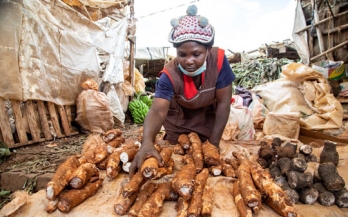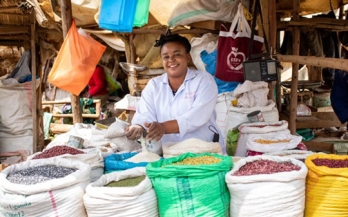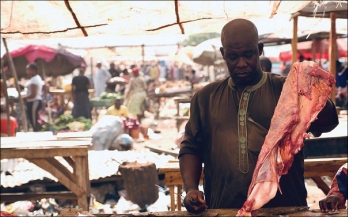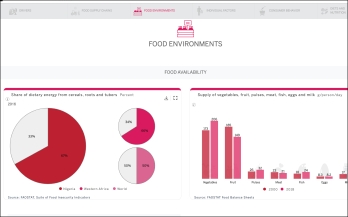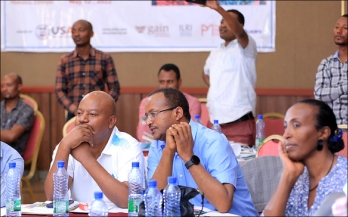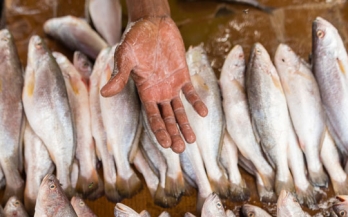- 27/07/2022
Using a theory of change or a programme impact pathway to guide design, monitoring, and evaluation efforts is increasingly being used across various nutrition interventions, yet there are few documented examples in biofortification programmes.
- 26/07/2022
Biofortification (or nutrient enrichment) of staple crops has the potential to contribute to reducing micronutrient deficiencies by increasing micronutrient intakes. In 2019, GAIN and HarvestPlus entered a partnership to lead the Commercialisation of Biofortified Crops (CBC) Programme, which aims to catalyse commercial markets for biofortified crops in six countries across Africa and Asia.
- 25/07/2022
To inform the development of effective commercialisation strategies, a systematic assessment of country- and crop-specific value chains is essential to identify success factors, barriers, and opportunities.
- 22/07/2022
EatSafe conducted focus group discussions and individual interviews with vendors and consumers to understand knowledge, attitudes, and practices related to food safety behaviors in Kebbi State, Nigeria.
- 08/08/2022
In this report, EatSafe addresses the gap of food safety data within the Food Systems Dashboard (FSD) by identifying indicators relevant to national food safety systems, assess the availability of data sources, and develops a systematic, quantitative scheme to evaluate indicators against FSD inclusion criteria.
- 12/07/2022
During program startup in Ethiopia, EatSafe identified and gauged stakeholders’ interest and influence in food safety. EatSafe then convened a series of events to engage these stakeholders at local and national levels prior to intervention implementation.
- 11/07/2022
Micronutrient deficiencies are a public health challenge in Bangladesh. Many children, women, and vulnerable populations are not getting the nutrients they need for proper brain development, immunity, and physical and mental health. Together with diversified diets, large scale food fortification has the potential to make a significant impact on micronutrient deficiency in Bangladesh.
- 11/07/2022
Accelerated digitalization is one of the most significant growth engines for developing nations. With technology driving increased sales and profits globally, a digital quality assurance/quality control (QA/QC) system for food fortification in Bangladesh will open THREE paths to greater efficiency and enhanced financial performance for fortified food producers.
- 11/07/2022
Monitoring the quality of fortified foods has traditionally been a manual, time-consuming process, which relies primarily on sporadic testing once products have reached the market. A partnership of international specialists and experts is working with Bangladesh’s food producers to develop a platform of sensors and software, enabling oversight of the production process and product quality.
- 28/06/2022
Achieving optimal health and nutrition requires people to be both well-nourished and free from foodborne hazards. The Global Alliance for Improved Nutrition (GAIN) has long recognized the importance of integrating food safety to achieve global nutrition and food security goals.
